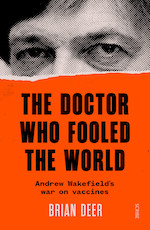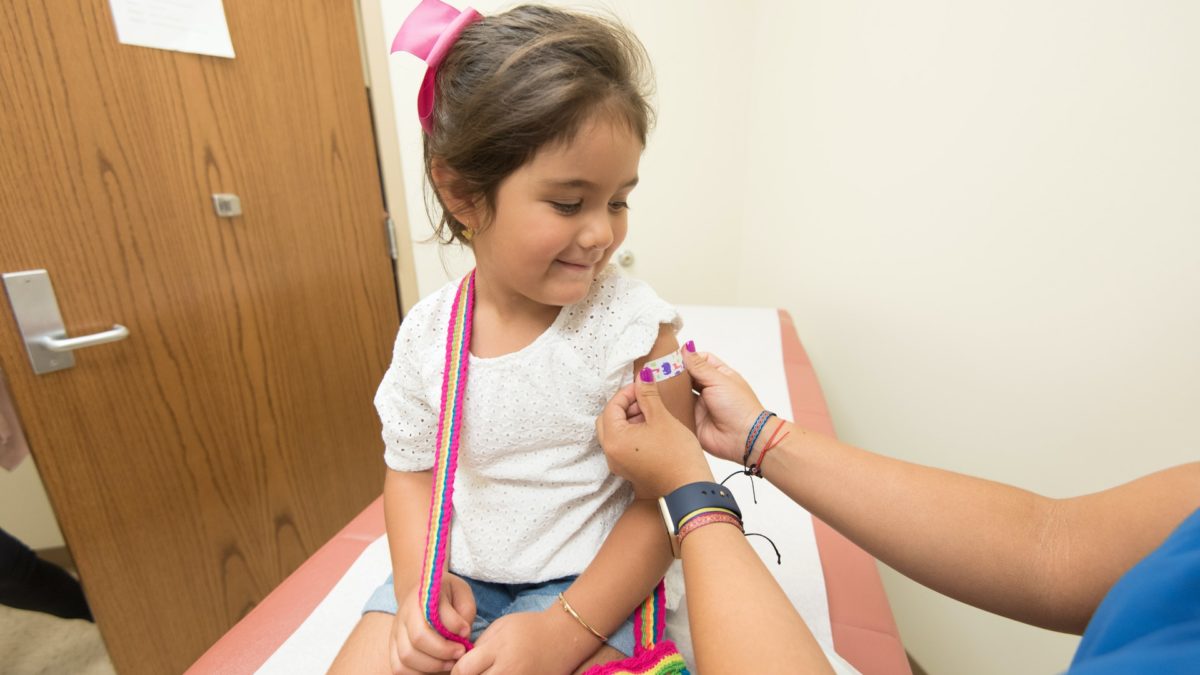Like most new mums, I faced a lot of fears in the first year of Elliott’s life. Is he gaining enough weight? Should he be putting that in his mouth? Is he sleeping enough? Am I giving him adequate tummy time? The questions go on—and on.
I remember when he was a few weeks old. It was one of the first trips we made out in public with him, after a routine doctor’s appointment. Well, it was a trip we tried to make in public. We were very much prepared for the trip—he was lying snugly asleep in his pram under the privacy of a muslin sheet “curtain”, and we had a fully equipped nappy bag. But when we emerged from the carpark into the midst of the normal hustle and bustle of a shopping mall crowd, my husband and I took one look at each other, nodded our heads and promptly turned around, heading for our car and home.
We had both arrived at the same conclusion at the same time when we saw the horde of people: Elliott was too young to be vaccinated at the stage (other than what he had when he was born) and there were hundreds of germ-carrying people who could potentially infect him with something that could do him harm. We felt much safer in the bubble we had for him at home. (Mind you this was four years ago, before the words COVID-19 or coronavirus meant anything to the general public.)
So you would think I would be relieved when he turned two months old and the time finally came for him to be vaccinated. And yet, I was riddled with fear and a niggling doubt. The same one that I would feel when he was four, six, 12 and 18 months old, and just a few months back, when he was four years old—all times for him to get vaccinated, according to Australia’s National Immunisation Program Schedule (if you’re wondering, here’s the New Zealand schedule).
Like most mums, I’d heard vague (and not-so-vague) murmurings of how vaccines can cause autism. Sad, tragic stories of how seemingly normally developing children would suddenly regress either immediately or days after receiving a needle. Heart-rending accounts from parents of the guilt and regret they have to live with because their decision to vaccinate their child had resulted in the child being diagnosed with autism. What if? What if something were to go wrong?
Rationally and even deep in my heart, I knew vaccinating Elliott was the right thing to do, and yet, I couldn’t shake the niggling doubt. What if? What if something were to go wrong? I’ve read news reports that the claims linking vaccines with autism were unfounded, but I’ve also equally read stories professing evidence of grand cover-ups by governments and pharmaceutical companies. Not having any medical background, or really time or the know-how to do much research, I simply wasn’t sure who I was meant to believe. What if? What if something were to go wrong?
Thankfully, the only things that came out of those vaccination trips were loud crying and a mild fever afterwards, but I’ve always wondered if vaccines actually do cause autism.
In the video below, Dr Simone Kooke discusses some common misconceptions surrounding childhood vaccines.
Brian Deer’s The Doctor Who Fooled The World
I have to admit it was mostly curiosity that led me to pick up Brian Deer’s book, The Doctor Who Fooled the World. I simply wanted to know the origins of the vaccines-autism link and I guess most of all, to have the assurance that I needn’t worry about vaccinating my son. I wanted to be convinced that all the checks and balances had been made to irrefutably declare that the study that seemed to prove a link between vaccines and autism, a study published in the highly respected medical journal The Lancet, was actually wrong.
After all, if The Lancet got it wrong, how could I trust any other published studies? And just what was it about the study that made it “wrong”?
Prior to reading the book, I haven’t even heard of Andrew Wakefield, the doctor who fooled the world, and my knowledge of the entire vaccination controversy was at its best, entry level. I didn’t know much, just enough to be frightened of the possibility of doing my son permanent damage by vaccinating him.
This book has changed all of that, and full credit goes to Brian Deer’s writing gift and ability to make what could potentially be highly complex and confusing, come across easily understandable and highly readable.
You would expect a book about immunisations, vaccines and medical research to be filled with jargon and complex theories, but it isn’t. I’d be the first to admit I don’t have a scientific or mathematical mind, and I was able to make it through The Doctor Who Fooled the World without my head spinning—well, my head did spin, but for an entirely different reason.
This is storytelling at its best, but not of a fictional tale. These are real people with very real lives, and with very real consequences that are still being felt all around the world today.
And this is ultimately, investigative journalism at its best: A thirst for the truth, a nose for deception, wits to know where to look and questions to ask, and a respect for the public’s interests.
The Doctor Who Fooled the World does an amazing job of taking you to the beginnings of the modern-day anti-vax movement, opening your eyes to the ulterior motives of the man who lit the match and started a fire that sadly, can’t seem to be put out.
It’s a book that’s easily digested, but it will leave you reeling as to what some people would do to prove a point—even if it’s wrong—without regard of its consequences and how it would impact parents on a personal level, and the health and safety of everybody on a global level.
And at the end of the day, it’s us mums who have to suffer. As Brian Deer concludes, “For medicine and the media, it was fear and disease that were the be-all and end-all of the saga. Parents got scared, kids went unvaccinated, illness bounced back among those left unprotected, occasionally with brain damage and deaths.
“For me, however, it was the overlooked suffering: the gnawing horror of guilt. . . . It was blame the parent: lay the charge on their choice, and make a living out of selling them redemption. . . . Wakefield’s mothers [those who believed him that their decision to vaccinate their child caused autism] felt guilt so that he didn’t have to. They bore remorse and shame on his behalf. And why that’s important isn’t just because they suffered—shouldering a pain they surely didn’t deserve—but because it let him mobilise their misery.”
Read the book. Be informed. And get rid of the niggling doubt and guilt.
Vaccinations: What you need to know
Dr Andrew Pennington is a GP with Sanctuary Lifestyle Clinic and is passionate about preventive health and wellness. He has this to say about vaccinations.
Do vaccines cause autism?
No. In 1998, a British surgeon and researcher, Dr Andrew Wakefield, along with a team of researchers, published an article in medical journal The Lancet proposing a link between the MMR (measles, mumps and rubella) vaccine and gastrointestinal disorders and autism in children. Later his evidence was shown to be methodologically flawed and the paper was immediately retracted. No further research has been able to demonstrate this supposed link despite many reviews of the evidence in different countries. (Editor’s note: Brian Deer’s book, The Doctor Who Fooled the World, explains this in detail.)
Do vaccines cause harm?
This question deserves serious attention. There are many contentions against vaccination. We don’t have space and time to address each one of them, but I would refer you to “The science of immunisation” if you wish a more detailed examination of the science and facts. Minor reactions such as low grade fever, irritability, an injection site lump, localised pain and rash are common to many childhood vaccinations. In very rare cases, severe, life-threatening reactions have occurred. While every single negative reaction is important, it must be weighed against the enormous number of people whose lives have been saved by vaccinations. On balance, the enormous benefit far outweighs the very small chance of significant harm.
Do vaccines weaken the immune system?
No. Vaccines actually strengthen the immune system and certainly do not weaken it, because they induce an adaptive immune response the body remembers so that if exposed to that disease in the future, it can quickly eradicate it before it takes hold.
Does getting the disease itself induce better immunity than the vaccination?
German philosopher Friedrich Nietzsche said: “that which does not kill us, makes us stronger”. The problem in the area of infectious diseases is that many of us would be killed were we not vaccinated. How do we know that for sure? Because that’s precisely what happened before vaccinations. And Nietzsche was not correct, at least when it comes to medicine, because many people who survive infectious diseases do so at enormous physical cost for the rest of their lives. So, if you think death is something to trifle with and permanent disability isn’t all that bad, then vaccinations may not be for you. Assuming you are a rational person, then vaccinations make sense.
Is vaccination only an issue about me?
No. When vaccination rates in a community fall below a certain level, infectious disease outbreaks return. This happens because if there are enough non-immune adults/children in the community, infectious disease can be spread more easily, thus so-called “herd immunity” is lost. And it has happened on numerous occasions. In 2011, there were roughly 158,000 people who died of measles, the vast majority were unvaccinated children under the age of five living in developing countries. But believe it or not, measles is beginning to break out again in Western nations because the number of unvaccinated children has reached a critical mass. The result is predictably devastating.
Take away message
While we should be sensitive to every person’s autonomy to make decisions about their own health and the health of their children, vaccination has been clearly shown to be one of the most efficacious health interventions and I believe a merciful God has directed the minds of physicians and scientists over the years to develop vaccination as a way to prevent human suffering. It’s my hope that by providing some facts and debunking some of the myths, those who may have been wavering about the pros and cons of vaccination may clearly see the health benefits and choose to vaccinate themselves and their families to prevent needless disease. Talk to your family doctor for more information. Better to bury inaccurate ideas, than a precious child.

Brian Deer’s The Doctor Who Fooled the World is published by Scribe Publications (2020).
How helpful was this article?
Click on a star to rate it!
0 / 5. 0
Be the first to rate this post!
Melody Tan
Related posts
Subscribe
Receive personalised articles from experts and wellness inspiration weekly!

